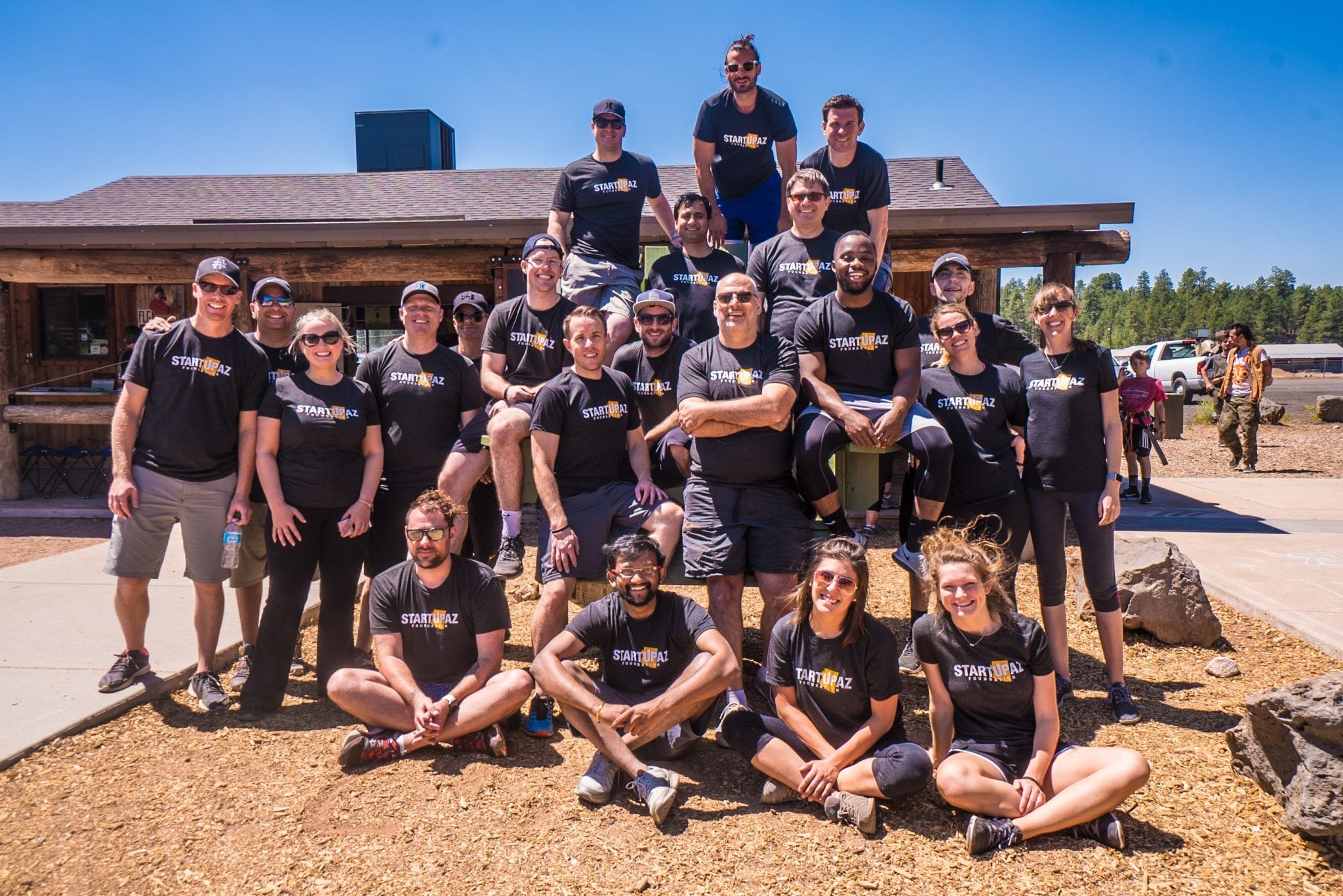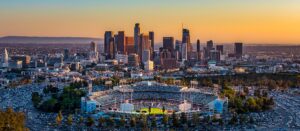StartupAZ Foundation is driven to inspire connectivity and generosity among Arizona’s most innovative companies. StartupAZ’s inspiration is grounded in the desire to build our ecosystem on Arizona’s authentic spirit of generosity.
Arizona’s startup ecosystem is a vibrant, blossoming seed-stage environment, marked with significant effort and investment. Additional significant outcomes are on the horizon. Some notable areas of activity are ITSoftware, medical device/bio/life sciences, cleantech/renewable energy, IoT, Cybersecurity, Fintech, manufacturing, and autonomous vehicles (air and land). StartupAZ Collective, StartupAZ’s signature initiative, is designed to increase the success rate and growth of the region’s highest potential startups.
It’s where entrepreneurs combine their talent, networks, and resources to help each other achieve success in growing their companies and creating a lasting impact on the community. It’s an exciting time in our ecosystem.

How Did We Get Here?
Through the 1990’s until the Dotcom Bust in 2001, Arizona enjoyed an early but growing technology ecosystem that included notable successes like SalesLogix, Viasoft and JDA Software. Venture capital found us, though there was little angel activity. Some entrepreneurial ecosystem support existed, most notably the Enterprise Network, the AZ Software Association which became the AZ Tech Council, and the Arizona Venture Capital Conference (AVCC).
With the Dotcom Bust, however, venture capitalists fled upmarket (or their funds died) and we went through a significant slowdown. The AVCC became an angel and entrepreneur conference. But startups kept starting up. By 2006, the ecosystem was looking up, and the AVCC/Angel Capital Conference successfully morphed into Invest Southwest, targeting investors interested in investing in early stage tech companies, our bread and butter. Then the Great Recession pretty much destroyed the investor base for early stage companies.
Just a Quick Note:
InnovationsOfTheWorld.com has partnered with Trade License Zone (TLZ) to support global innovators looking to expand internationally. Take advantage of the UAE’s Free Zones—enjoy streamlined setup, low corporate taxes, and a strategic gateway to the Middle East and beyond.
Get Your UAE Free Zone License Fast & Easy!By 2011 and 2012, angel investing became significant, with Desert Angels investing more than $12MM from 2009-2012, and Arizona Tech Investors following a similar, though not quite as active, path in Phoenix, investing almost $5MM in that period. But there weren’t yet the institutional “seed funds” we see today. On the ground, the metaphor of many rowboats rowing in circles best described our scattered ecosystem. Then two significant things happened.
In 2012, the newly-born Arizona Commerce Authority (ACA) formally launched the twice-a-year AIC business plan competition offering $1.5 million in grants to six young tech companies in each of two cohorts, $3 million per year in total. While the grants themselves were important, we discovered that the magic was the competition within our ecosystem and the light it cast upon undiscovered startups that began to glow. That, in turn, gave the ecosystem’s investors, advisors and supporters the opportunity to discover, coach, help and invest in the brightest startups. While it seems simple, this was a profound change. AIC is now in its 13th cohort and has surfaced (to date) 1,092 unique startups—which is about 800 or 900 more than we might have otherwise discovered and helped. ACA data shows that these applicants have had more than 6,000 employees, total assets exceeding $800 million and have raised more than $1 billion in capital. While the ecosystem/ACA can’t claim credit for all that, I do believe that it has made a significant difference.
The second significant series of events began with a simple email: a call to action from Bob La Loggia, Gounder/CEO of AppointmentsPlus, on January 31, 2015. “The Email” lead to an outburst of entrepreneur-lead ecosystem activity, including inauguration of Team AZ dinners, the launch of a Slack channel for ecosystem information exchange, the launch of #yesphx, and the launch of StartupAZ Foundation.
Indeed, it was at the first Team AZ dinner where group brainstorming lead to the observation, since confirmed over and over, that generosity is an authentic, compelling attribute of our ecosystem’s DNA. Entrepreneur leaders Mario Martinez, Brad Jannenga, and Brandon Clarke grabbed on to that observation and ultimately founded StartupAZ Foundation as a nonprofit foundation to inspire and fund connectivity and generosity throughout the ecosystem.
Similarly, entrepreneur Jonathan Cottrell, who had created #yesphx in 2014 as a communication hashtag for our ecosystem, began using #yesphx as a “unifying banner” for the “world’s most generous community for entrepreneurs.” For me, this second significant series of events represents the emergence, really for the first time, of strong leadership by entrepreneurs, such as Bob, Mario, Brad, Brandon and Jonathan, serving as role models and doers– in the ecosystem, together with the recognition that our startup ecosystem DNA includes real, authentic generosity.
Why Phoenix?
#yesphx has it right for not just Phoenix but all of Arizona: We are the world’s most generous community for entrepreneurs. There’s no better foundation on which to build enduring, valuable companies serving their communities. Arizona, and Phoenix in particular, is also a great place to work, live, and play.
The Future of Innovation
A familiar lamentation–that Arizona doesn’t have enough Series A companies or enough Series A capital. So what to do? Our companies need to set higher goals, think bigger, seek out employees, advisors, and investors who have done it before. Learn from them. By building something bigger than themselves, connecting with others, and aiming higher, the entrepreneurial oars will row the boats forward into a much brighter future than some folks could have ever imagined.
Advice & Best Practices
• Build stronger better teams
» Hire the best people possible, better than you
» Engage the best possible advisers, subject matter experts, and Board members
• Execute, execute, execute, all with relentless focus on the few things that demonstrate you will win
• Be generous and build community with your stakeholders














